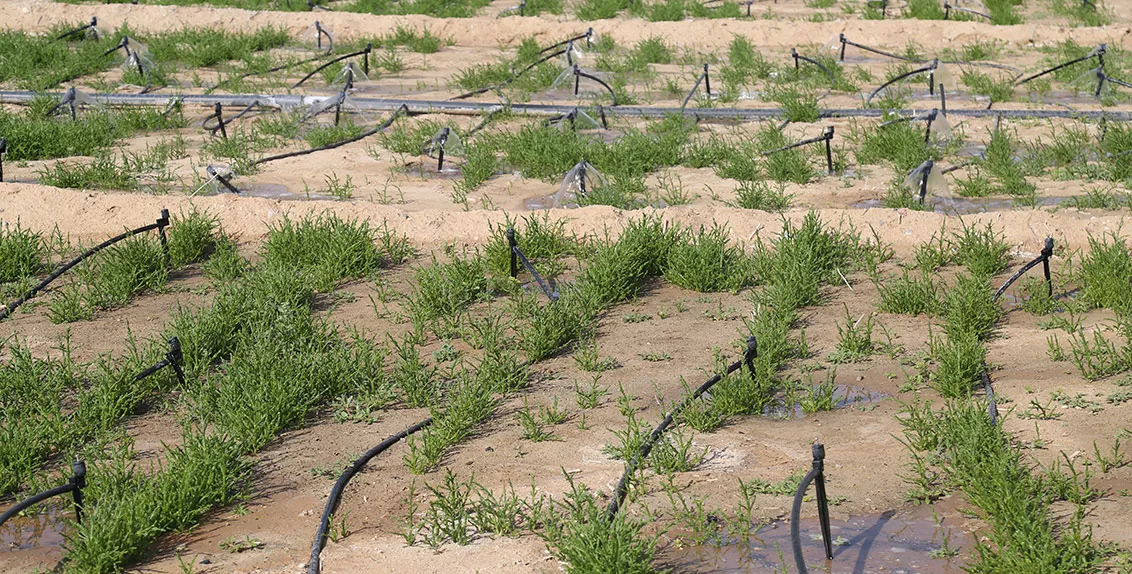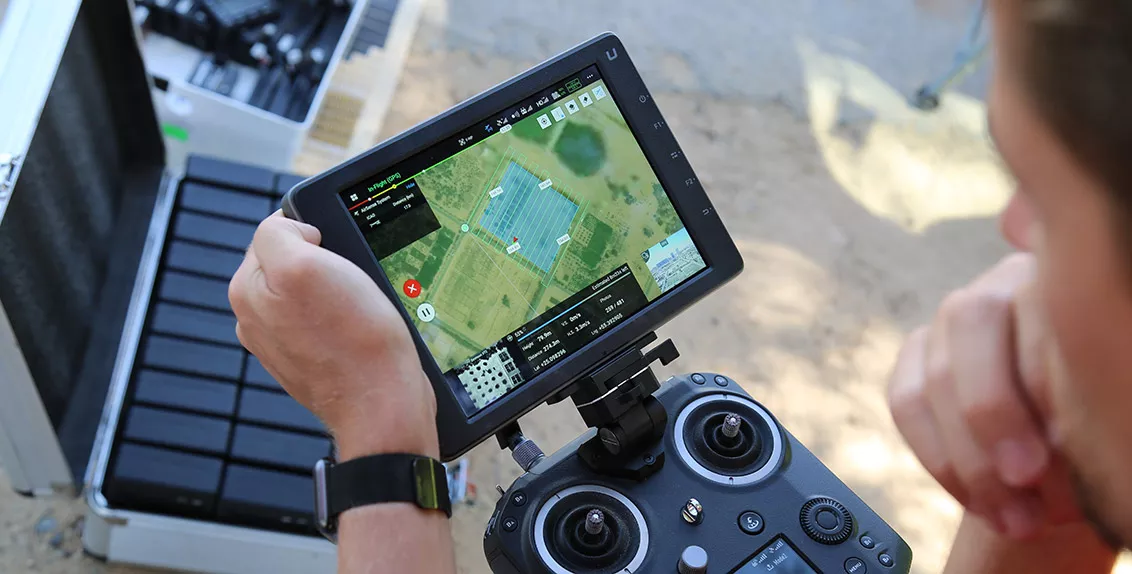EAD, ICBA join forces for environmental protection in UAE
9 April 2020
The Environment Agency - Abu Dhabi (EAD) and the International Center for Biosaline Agriculture (ICBA) signed recently a new agreement aimed at enhancing sustainable environmental development and protection in the UAE.
Signed by Her Excellency Dr. Shaikha Salem Al Dhaheri, Secretary General of EAD, and Dr. Ismahane Elouafi, Director General of ICBA, the memorandum of understanding (MoU) spells out the main areas of cooperation in ensuring the sustainable use of natural resources such as groundwater, soil and biodiversity.
Commenting on the partnership, Dr. Shaikha Salem Al Dhaheri, Secretary General of EAD, said: "We believe our success at EAD has always been a direct result of several collaborative efforts with important organizations and we are very pleased to sign this MoU with the International Center for Biosaline Agriculture with such a significant scope of work. We have a long-standing relationship with ICBA, and together we will be able to apply the larger framework for the conservation of the environment in Abu Dhabi through initiating projects that will safeguard the soil, groundwater, and biodiversity. Through this partnership, which will span three years, we will be able to develop studies of our natural habitats and lead research that will help us achieve our vision of protecting our nature, resources, and species."
For her part, Dr. Ismahane Elouafi, Director General of ICBA, commented: "We are delighted to partner with the Environment Agency - Abu Dhabi to explore and implement new projects to improve some of the essential natural resources such as soil, water and groundwater in the UAE. The strategic partnership of more than 15 years between EAD and ICBA has advanced the missions of both organizations and has been behind several water conservation projects and initiatives in Abu Dhabi. This new MoU will allow us to do much more together and support further Abu Dhabi's environmental protection."
The agreement stipulates collaboration in, among other things, rangeland rehabilitation and management; data sharing; exchange of seeds and native plants; use of germplasm from ICBA’s gene bank for some of EAD's seed collections; and research on drought-resistant species which could be potentially used for restoring some degraded habitats.
Moreover, the agreement focuses on joint work on the use of remote-sensing and drone technologies for propagation and habitat monitoring; soil quality monitoring, assessment and mapping; applied research on hydroponics; and the use of reject brine from desalination units.
The two organizations will also cooperate in capacity development in water management in general and innovative water-saving technologies in particular; as well as training EAD staff in gene sequencing and other aspects of genomics.
EAD and ICBA also aim to conduct joint research on developing native plant species adapted to dryland conditions for restoration programs; develop and update water policies and strategies; and study the impact of climate change on water resources.
EAD and ICBA have a long-running partnership. ICBA worked with EAD, one of the center’s main donors, on a number of major projects such as the Abu Dhabi Water Master Plan in 2009. The center also contributed to the soil survey of the Emirate of Abu Dhabi (2006-2009), which provides comprehensive digital soil information for decisionmakers and land use planners. ICBA also partnered with EAD for the soil salinity management plan, which was recently launched to develop a nationwide model for the optimization of available water and soil resources.
In 2014, the two organizations published a book titled “The United Arab Emirates Keys to Soil Taxonomy” in collaboration with the Natural Resources Conservation Service of the United States Department of Agriculture.
And in 2019, EAD and ICBA collaborated with Massey University, New Zealand, on developing a crop calculator tool to help estimate the actual water consumption of different crops. This tool will help to regulate groundwater abstraction in the emirate of Abu Dhabi and enforce Law No. 5 of 2016 and its executive order.
Furthermore, EAD and ICBA also initiated a joint program with other stakeholders to implement best practices in aquaculture and cultivation of Salicornia, a multipurpose halophytic crop, using reject brine from desalination units.












